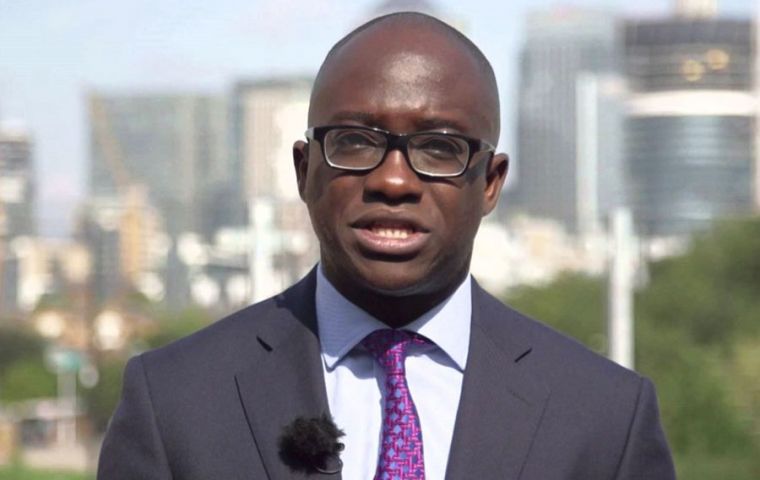MercoPress. South Atlantic News Agency
Science minister resigns over Galileo system: Theresa May's Brexit deal is naive
 Science minister Sam Gyimah said it was “a clarion call” and that any deal with Brussels would be “EU first”
Science minister Sam Gyimah said it was “a clarion call” and that any deal with Brussels would be “EU first” A UK minister has resigned saying a row over involvement in the EU's Galileo satellite-navigation system exposes Theresa May's Brexit deal as “naive”. The UK had wanted to stay part of Galileo after Brexit, but the EU said it would be banned from the extra-secure elements of the program.
Mrs. May confirmed on Friday that the UK was pulling out of the project.
Science minister Sam Gyimah said it was “a clarion call” and that any deal with Brussels would be “EU first”. The UK's interests “will be repeatedly and permanently hammered by the EU27 for many years to come”, he added in a Facebook post setting out his reasons for resigning. He also said he would be voting against Mrs. May's deal.
Former Tory cabinet minister and campaigner for the People's Vote, Justine Greening, said Mr. Gyimah was a “highly respected and capable minister” and praised him for not ruling out a second vote.
And the Lib Dem's education spokeswoman, Layla Moran, said Mr Gyimah's exit showed the government was “falling apart”, and that he had “seen at close quarters the devastating effect this botched Brexit will have on these important sectors”.
Galileo is the EU's upcoming version of the US's GPS, which is used by millions of people around the world. The UK invested €1.4bn into the project and has estimated returns to UK industry of €1.15bn.
But when the BBC asked if any more of the money would be given back, a government spokesman said the project was “part of the withdrawal agreement” and the UK had reached “a fair financial settlement with the EU”.
Mrs. May said the British army - which had been planning to use Galileo along with the US GPS - will no longer use it.
The UK will instead explore options to build its own satellite-navigation system. The government has already set aside £92m to look at how it can be done.
“I cannot let our armed services depend on a system we cannot be sure of,” Mrs. May said. “That would not be in our national interest. And as a global player with world-class engineers and steadfast allies around the world we are not short of options.”
Many people's sat-navs and mobile location services currently run on a US military-based system called GPS - global positioning system - which uses satellites to pinpoint our locations. China and Russia also have satellite-navigation positioning systems.
In 1999, the European Union embarked on a plan to put together its own network of satellites, called Galileo, so it was not reliant on the US, Russian and Chinese systems.
The first satellites were put into orbit in 2013 and it is planned to be fully operational in 2020 with 30 satellites orbiting earth. The technology will be used by EU governments, citizens, military and industry.
All EU member states will be allowed access to it - including the “public regulated service” (PRS) part of Galileo, which is the secret inner workings and is due to be completed in the mid-2020s.
This can only be used by government-authorized users like police and only during emergencies or crisis situations. While GPS is accurate to within about 20 meters, Galileo is designed to improve that, to around one meter.




Top Comments
Disclaimer & comment rulesCommenting for this story is now closed.
If you have a Facebook account, become a fan and comment on our Facebook Page!